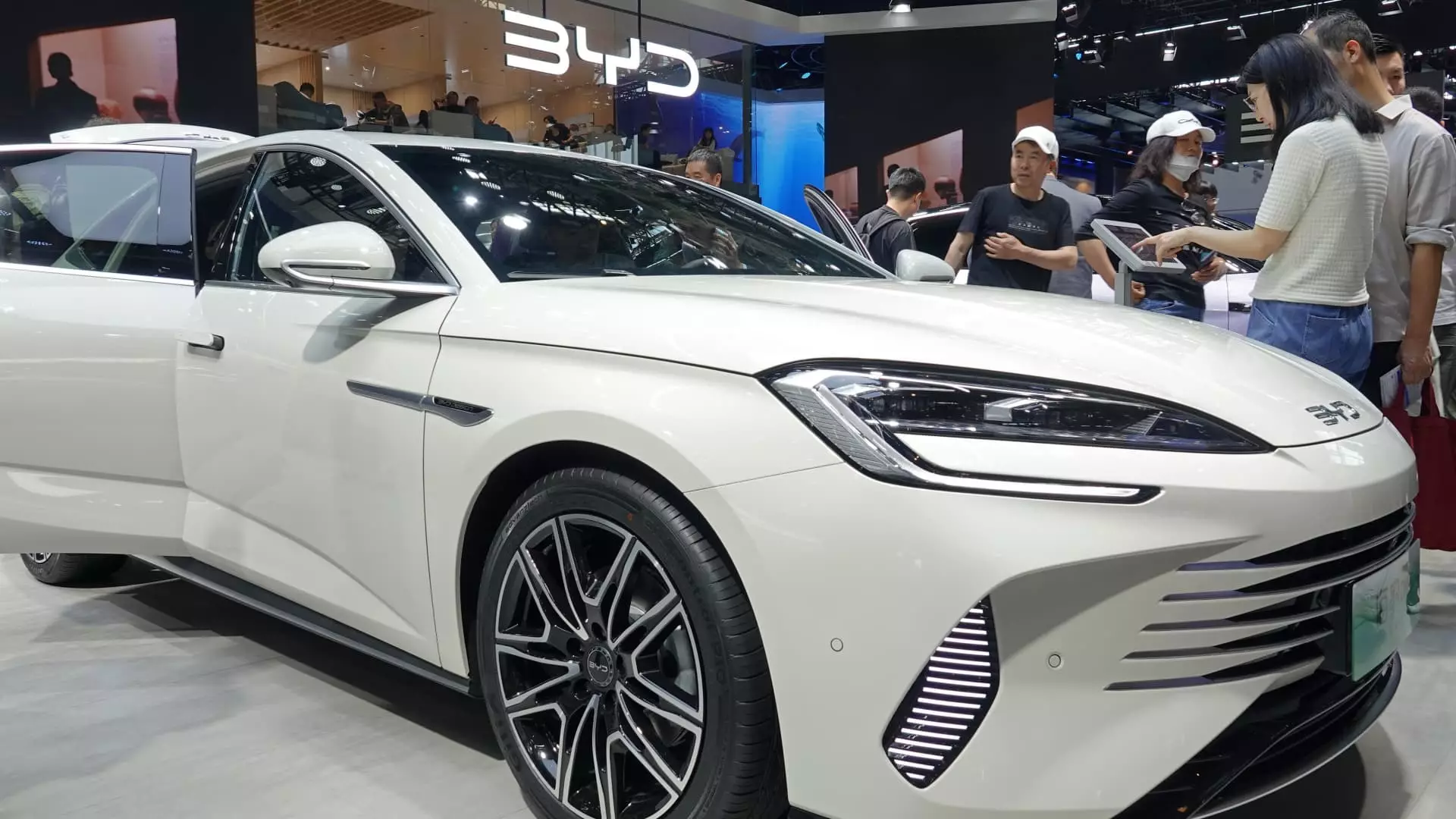The European Union’s announcement of higher tariffs on Chinese electric vehicles has sparked a surge in the stock prices of Chinese EV makers. This move has caused a significant impact on the market dynamics, with Hong Kong’s Hang Seng index jumping 1.23% at the opening, largely driven by gains in EV stocks.
Leading the rally was EV company BYD, which saw an impressive 8% increase in its stock price during morning trade. Geely also experienced a positive upswing of about 4%, while Nio and Li Auto witnessed their shares climbing by 1.75% and 2.67% respectively. However, state-backed SAIC faced a decline of more than 2% following the EU’s tariff announcement.
The EU specified that extra tariffs would be imposed on Chinese EV players with a significant presence in Europe. BYD will be subject to an additional 17.4% tariff, while Geely will face an extra 20% duty. SAIC, on the other hand, will be hit the hardest with additional duties of 38.1%. These tariffs come on top of the standard 10% duty already imposed on imported EVs.
The punitive tariffs highlighted by the EU investigation could have an impact on the Chinese EV sector. Other Chinese EV firms that cooperated in the investigation but were not sampled would face 21% in extra tariffs, while those that did not cooperate could be subjected to 38.1% additional duties. Despite these challenges, analysts believe that the tariffs will not derail China’s ongoing recovery in the EV industry.
In response to the EU’s provisional duties, China expressed deep concerns and strong dissatisfaction, labeling it as “blatant protectionism.” The Ministry of Commerce in Beijing criticized the move for disrupting and distorting the global EV industry. The EU’s seemingly targeted approach towards Chinese state-backed SAIC has raised speculation that the bloc is urging the automaker to establish a production facility within Europe.
The decision to impose higher tariffs on Chinese EVs is a strategic move by the EU to protect its domestic industry and incentivize Chinese manufacturers to invest in local production facilities. This development could potentially shape the future landscape of the global EV market and lead to increased competition and investment in sustainable transportation solutions.
While the EU’s decision has caused a surge in Chinese EV stocks, it has also raised concerns about trade tensions and protectionist measures. The true impact of these tariffs on the Chinese EV sector remains to be seen, but it is clear that the global market for electric vehicles is becoming increasingly complex and competitive.

